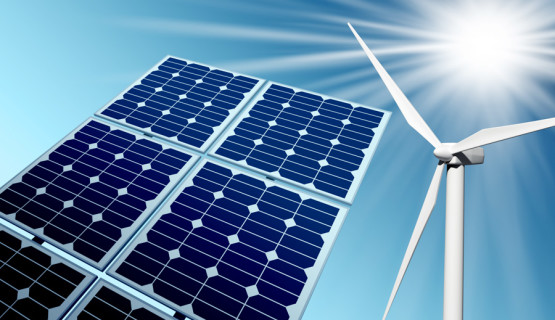
On-Grid Vs Off-Grid Solar solutions. Ground Mount Vs Roof Mount. Polycrystalline Panels Vs Monocrystalline.
There are several options to be made when establishing a solar power system. You also want to make the best selections possible because you’re investing in equipment that will last a long time.
If you work with a qualified solar solutions installer in Pakistan, they’ll be able to help you navigate these options and choose the best system for your needs. A little front-end homework, on the other hand, can’t hurt.
That’s why we’re breaking down the critical distinctions between on-grid and off-grid solar solutions so you can figure out which is right for you.
What is On-Grid & Off-Grid Connection
1. Grid-Tied – Solar Solutions Connected to the Power Grid
These are sometimes known as “On-Grid Systems” because they run parallel with the grid.
Net metering allows the system’s excess energy to be sent back into the grid, saving the user up to 90% on energy costs.
Since there is no battery backup, the system will only work when the power grid is available.
2. Off-Grid – Solar Power Systems Disconnected to the Grid
Off-Grid Solar solutions are designed for sites with no connection to the grid, such as rural regions.
Apart from solar PV output throughout the day, energy supply during non-sunlight hours relies entirely on a battery backup system.
Distinctions Between On-Grid & Off-Grid Solar Systems
As we know, the first and most obvious distinction between the two systems is that on-grid systems are grid-connected, whereas off-grid systems are not. There are several other distinctions between them.
Let’s have a look at the key differences:
1. Access to Power
An off-grid solar solution does not have access to electricity from an outside source. It can have power only if the system generates it. This implies that energy will only be available when the sun is shining. An off-grid system must have a large battery backup to access power. An off-grid system must have a large battery backup to access control. The battery backup must be able to store electricity generated during the day and then deliver it when the system is not producing electricity. A generator may need to be attached to the off-grid system if there is greater electrical demand.
An on-grid system is connected to the utility grid, allowing for more straightforward access to power. Even if your solar system isn’t operating or providing enough electricity to suit your demands, you may use electricity. Connecting to the grid allows you to have access to power, whether you are producing it. On the other hand, your on-grid system will work in the event of a utility power outage.
2. Grid Power Outages
- Off-grid system: A power outage on the grid will not affect an off-grid system. Because an off-grid system operates independently, a power loss will not disrupt access to electricity. Even if there is a power outage, you will have an uninterrupted power supply.
- On-grid system: This system is linked to the power grid and has access to electricity. However, if there is a power outage, you will be without power as well. If the grid’s ability fails, your on-grid system will likewise be rendered inoperable. This is a rule that must be followed in an on-grid system. This keeps utility personnel from getting electrocuted while working on the grid.
3. Excess Power Production Management
Off grid-system: Depending on the system size, consumption, and weather conditions, the system may produce more electricity. If your system is large enough and has limited usage, it may generate surplus power.
Furthermore, an off-grid system is the first choice to create extra energy for future use. Batteries are connected to an off-grid system, allowing for additional power storage to leverage the house system at night or when the weather is overcast and the times when the system isn’t producing enough.
This type of solar solution can significantly increase the cost of the solar plant.
On-grid system: An on-grid system, like an off-grid system, can generate more power than is necessary. This extra power is helpful in the case of an on-grid system. If we do not attach an additional meter at the point of supply to the grid, all excess energy will go unaccounted for.
Fortunately, most on-grid systems have a net meter to account for extra power. You must apply for a net meter.
Thanks to the net meter, you may utilize those credits when you consume power from the grid instead of paying for the used electricity. You may save a lot of money this way.
Conclusion
Both on-grid and off-grid systems have advantages and disadvantages, and neither is superior to the other. Everything is dependent on your energy consumption, location affordability, and practicality.
An off-grid system will be the superb option in one instance, while an on-grid system may be a superior alternative in another.
To find out what is best for you, speak with a professional solar solutions installer.






